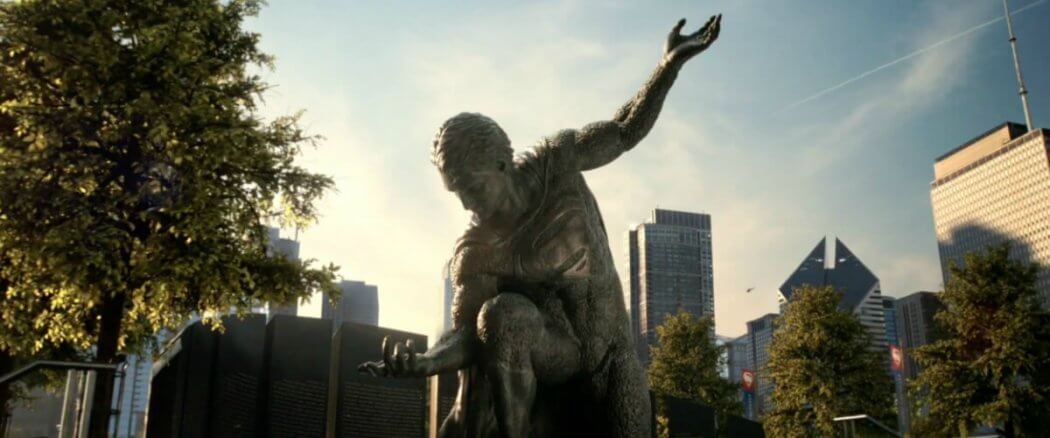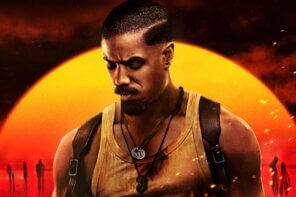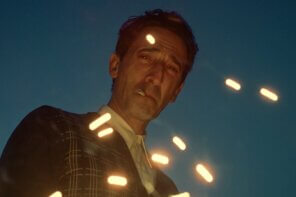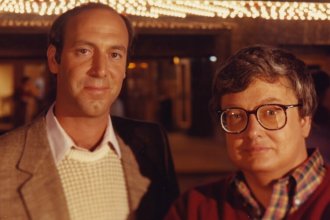Liking Batman v Superman wasn’t part of the plan. I saw the film out of duty, not pleasure. The trailers were soulless, and the critics had already panned it as a debacle. Still, I couldn’t ignore the biggest release of the year so far, so I went to check it off my list. I spent the next two hours waiting for the movie to get bad. To my surprise, it never did.
Sure BvS has flaws. I’d give it a B. But there are far worse ways to pass the time. This is an entertaining film from start to finish with fun characters and genuine surprises. Does it follow in the footsteps of Marvel? No, and maybe that’s a good thing. After all, we already have Marvel. Why shouldn’t DC march to a different beat? DC could be the Marvel alternative, free from shine and gloss with a darker, grittier landscape where heroes go to die.
But BvS is more than a good movie. It’s also the best metaphor for the Gospel I’ve seen in ages. Every superhero has its roots in Jesus, but few come as close as Superman in this film. The movie not only captures Jesus’ essence, but also the human opposition that surrounded him. Here is the Gospel according to BvS. (Spoilers abound.)
He Lived Among Us
Superman is not of this world, but he grew up as one of us. Clark Kent was raised by two normal parents. He learned the trade of his father, went to school, and lived an ordinary life. But Clark’s parents soon discovered that their son was anything but ordinary. Clark possessed powers that were beyond all human capabilities. He could have used them for selfish gain, but Clark wanted to help people.
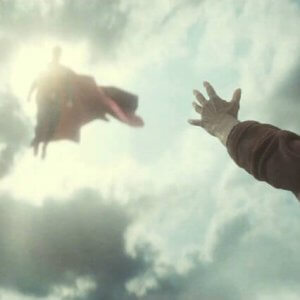 In BvS, Clark’s desire to help mankind reaches its apex. He hears the cries of pain all around and rushes to meet every need. A shuttle about to explode. A family trapped on their flooded home. A beast wreaking havoc on the city. Superman fights the powers, and the rescued worship him like a god.
In BvS, Clark’s desire to help mankind reaches its apex. He hears the cries of pain all around and rushes to meet every need. A shuttle about to explode. A family trapped on their flooded home. A beast wreaking havoc on the city. Superman fights the powers, and the rescued worship him like a god.
Jesus, too, was not of this world, but he grew up as one of us. He learned to be a carpenter like his father, played with his brothers and sisters, and worshiped in the synagogue. But Jesus’ parents learned early on that this was no ordinary child. They found him in a temple once at 12 years old going toe-to-toe with the religious leaders of his day. We don’t know if Jesus displayed other powers in his youth besides supernatural wisdom. Did he fix a broken glass for his mom? Make a table float in mid-air to freak out his dad? The Bible doesn’t give us much to go on.
What we do know is that around age 30, Jesus showed the world who he really was. This was no man; this was God. Jesus displayed power over all things. He could turn water into wine, stop a storm with a whisper, walk on water, and disappear. But what Jesus loved more than anything was helping people. He gravitated toward the sick like a magnet. One touch and the leper was healed. One word and the demon-possessed were freed. Jesus went from town to town healing humanity, and the people rejoiced.
We Rejected Him
BvS opens with the battle between Superman and General Zod from a different vantage point than Man of Steel. This time, we see the battle from the streets as collateral damage rains down from the sky. One man witnesses the carnage firsthand and vows to never let it happen again – his name is Bruce Wayne.
Wayne is suspicious of Superman from the start. What happens when Superman has a bad day? What if all those powers are suddenly pointed in the wrong direction? Batman comes up with a plan to protect humanity from this mysterious god, because how can an all-powerful being who lives by his own rules ever be trusted?
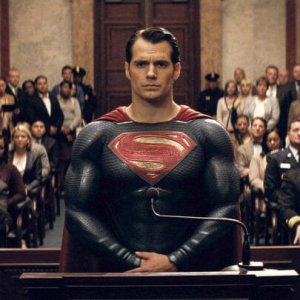 Batman isn’t the only one suspicious of Superman. The film’s villain, Lex Luthor, has a plan of his own. He tells Superman, “I found out way back if God is all-powerful, he cannot be all good. And if he is all good, then he cannot be all-powerful.” Luthor fuels Batman’s fire against Superman, but he also turns the world against him too. When a terrorist act is wrongfully attributed to Superman, the masses call for his head. The same people who Superman saved now want him to leave and never come back.
Batman isn’t the only one suspicious of Superman. The film’s villain, Lex Luthor, has a plan of his own. He tells Superman, “I found out way back if God is all-powerful, he cannot be all good. And if he is all good, then he cannot be all-powerful.” Luthor fuels Batman’s fire against Superman, but he also turns the world against him too. When a terrorist act is wrongfully attributed to Superman, the masses call for his head. The same people who Superman saved now want him to leave and never come back.
The masses turned on Jesus too. Collateral damage? Look no further than the story of the Demoniac. Jesus sends the demons called Legion into a herd of pigs that stampede off the side of a cliff. In an agrarian society, that represented a sizable financial loss. No wonder the townspeople urged Jesus to leave their town, despite the fact that he had just made a sick man whole.
The religious leaders hated Jesus because he was a threat to their power structures. They spread false rumors and incited both Rome and the people against him. Eventually, the same crowd who shouted “Hosanna” in the streets would shout “Crucify him!” before the judgment seat. The people wanted Jesus dead, even though he had done nothing but heal their sick and preach Good News.
He Died for Us
Toward the end of BvS, Lex Luthor unleashes a creature so powerful that a nuclear blast at point blank range can’t defeat it. In fact, the nuke only makes it stronger. The Metropolis government gives up. Their only hope is Superman.
But why should Superman help the same people who turned their back on him? They deserve the consequences of their actions. And yet, Superman doesn’t flee. He turns and faces the beast head-on. Just before doing so, he tells Lois, “This is my world.” Is he referring to Lois or is he taking ownership over the world that needs him?
 Superman takes the only weapon that can hurt him, Kryptonite, and hugs it close to his chest. Then he flies into the heart of the creature, killing the beast and himself in one fell swoop. Lois attends Superman’s funeral. Her hero is dead. But then comes the final shot – a gradual close-up on the coffin as the dust on top begins to rattle. Maybe death is no match for Superman after all.
Superman takes the only weapon that can hurt him, Kryptonite, and hugs it close to his chest. Then he flies into the heart of the creature, killing the beast and himself in one fell swoop. Lois attends Superman’s funeral. Her hero is dead. But then comes the final shot – a gradual close-up on the coffin as the dust on top begins to rattle. Maybe death is no match for Superman after all.
Jesus faced a menacing force too: sin. The whole earth was infected with it, and every attempt to get rid of the curse ourselves through religion or abstinence or denial only made it more powerful. So Jesus did the unthinkable. This holy, God-in-the-flesh infected himself with every detestable perversion on earth and died a sinner’s death.
We didn’t deserve it. We were the ones who turned our back on him. But he did it anyway. Jesus died for us. The disciples mourned him. All of creation mourned him. And then it happened – three days later the ground trembled, the stone was rolled away, and Jesus Christ rose from the grave defeating sin and death forever.
Modern-Day Parables
Many bristle when I refer to movies as modern-day parables. We’ve been trained well by the Gnostic tendencies of Plato, Augustine, and Calvin to treat “worldly entertainment” like movies with suspicion at best and contempt at worst. But all truth is God’s truth, and every good story is filled with it. Movies are merely story-telling vehicles. The content determines their value.
I wonder if the Gnostics in Jesus’ day were equally put off when he compared the Kingdom of God to worldly objects like mustard seeds, flour, treasure, pearls, leaven, and nets. Why should we be afraid to use common symbols if Jesus clearly wasn’t?
We live in a post-Christian society where almost everyone around us has heard the Gospel more than once. We need fresh symbols like BvS — not to replace the truth, but to reinvigorate it. I doubt Zack Snyder had this in mind when he made the film, but that’s the beauty of art. Art isn’t something we invented; it flows from the heart of God. How else could a Spring blockbuster about fighting superheroes become a parable of Jesus Christ?

